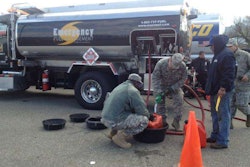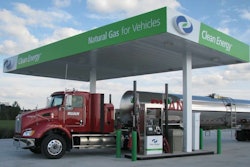Carrier Transicold says its new Supra 60-series truck refrigeration units feature improved refrigeration performance, enhanced reliability and compliance with 2013 emissions requirements from the U.S. Environmental Protection Agency.
The company says the new Supra 60-series comprises five single-temperature models – the Supra 560, 660, 760, 860 and 960 – covering the full spectrum of straight truck refrigeration needs, with refrigeration capacities up to 32,000 BTU (at 35 F) for the Supra 960.
“Supra diesel-powered truck units have a long-standing reputation for providing high performance and reliability by using systems engineered for lower engine and compressor RPMs than competitive models,” said David Dunn, product manager, truck products, Carrier Transicold. “Lower speeds mean better durability, longevity and reliability over the life of the unit. Our new 60-series continues to build upon that legacy.”
Among the 60-series’ improvements are:
Optimized standby systems, resulting in significant refrigeration capacity improvements for most models and the highest electric standby capacities among truck refrigeration systems available in North America
New high-performance, maintenance-free integrated fan/motor assemblies with an expected 10,000+ hour motor life
A maintenance-saving Extended Service Interval (ESI) oil system with a 1,500-hour service period
Various drive system enhancements for better performance and reliability
Improvements to the electrical system, such as use of sonic welds and elimination of splice points for fewer connections and increased reliability
“These enhancements represent a significant upgrade to Carrier Transicold’s Supra product line,” Dunn said. “The improvements, including use of maintenance-free and extended service interval components, significantly reduce the total cost of ownership for the Supra 60-series.”
Engines are certified to the EPA Tier 4 standard for non-road engines of less than 25 horsepower, which for 2013 adds a not-to-exceed (NTE) requirement. The NTE standard requires that engines not exceed maximum allowable emissions regardless of how they operate, including factors such as altitude and ambient temperature.









